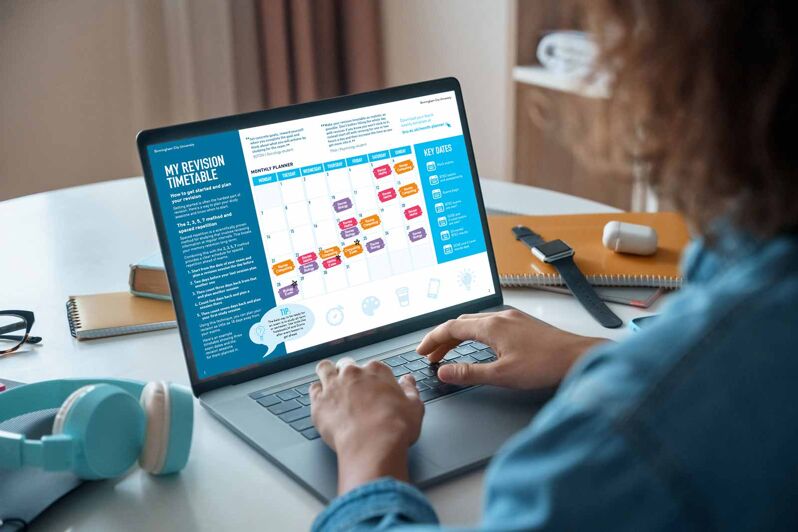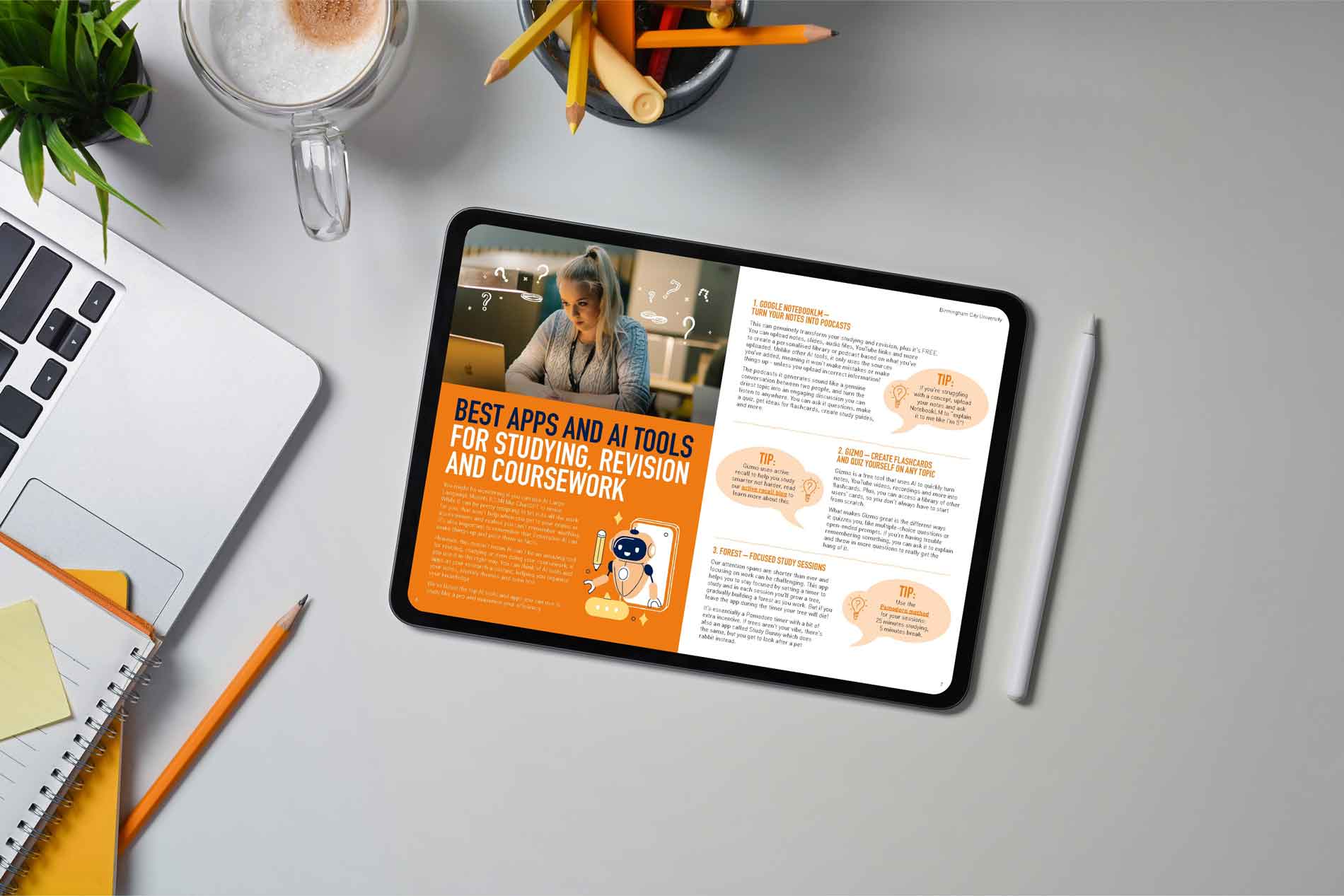Do you have no idea where to start with revision? Or find you can't get anything you learn to stay in your head? We've scoured the internet and TikTok for you to make a list of the best revision methods to use for any exam or assessment. These will help you learn the information you need, and be able to access it better during a test, you're welcome.
Struggling with revision?
Get your FREE guide packed with expert study tips, a step-by-step timetable planner, essential AI learning tools, and more to smash your exams.
Here's our list of the five best revision techniques:
1. Pomodoro for focus
Pomo what? This is a great technique if you're having trouble concentrating. The Pomodoro method follows a basic pattern of 25 minutes of studying followed by a five-minute break. If you do four of these in a row you can then have a longer break. It works because you learn better in short sessions, and you don’t have to punish yourself with unbroken hours of revision. Find out more about using the Pomodoro Technique.
2. Spaced repetition and the 2357 method
Spaced repetition is a scientifically proven method that involves reviewing information at closer intervals, boosting your memory, and making it less likely you’ll forget everything. The 2357 method is a way to plan out your revision sessions as you get closer to exams.
3. Flashcards for the win
Flashcards, or revision cards, are a tried and tested revision technique and there are so many ways to use them. You can use them to remember words and definitions, facts, quotes and more, but generally smaller chunks of information. Learn how to use flashcards to revise effectively.
4. Blurting
Blurting is a great revision technique you might have seen all over TikTok. It's all about testing yourself repeatedly and it engages active recall to help you remember. Find out how to blurt your way to success with our step-by-step process.
5. The Feynman Technique
This technique was developed by an award-winning physicist, Richard Feynman, who said the secret to his success was using his very own study method - The Feynman Technique! There are four simple steps to his technique:
- Choose the topic you need to learn and try to remember as much as you can from your notes.
- Teach it to someone else in simple terms, only referring to your notes when you really need to. You can do this by explaining the concept to a friend or family member or pretending to explain it to a child. The idea is that if a child can understand it, then you know the topic enough to simplify it.
- Review and learn any gaps in your knowledge.
- Teach it or pretend to teach someone else again. Use your notes less and less as you repeat the process.
Simplifying the topic over and over helps you memorise its key points and recall them during an exam.
Which one works best for you?
Testing out different revision techniques is key to find the right method for you. If you have ADHD or Dyslexia, you might find that alternative revision techniques work better. Check out advice from our Student Support Team on revising with ADHD and Dyslexia.
What type of reviser are you?
Everyone learns differently so a technique that works for your friends might not be right for you. Take our quick quiz to find out what revision methods could be the best for your learning style.






